Organic coffee is increasingly attracting attention as people lean towards natural foods, sustainable lifestyles, and a more granular interest in how what they consume is made. For many, the “organic” label on consumable products gives an impression of being high quality and healthy. This is partly driven by our changing perception and awareness of organic agriculture.
Yet, organic coffee is not quite as straightforward as most people would assume. So, what is organic coffee – and what’s all the fuss about? Read on for a simplified guide on everything you need to know about organic coffee: what it means, what to look for, and some brands to try.
For your information, if you click on a product on Jayarrcoffee.com and decide to buy it, we may earn a small commission.
Table of Contents
What Does “Organic” Really Mean?
Organic coffee refers to varieties grown under natural conditions (i.e., no pesticides, herbicides, and other synthetic chemicals)….right?
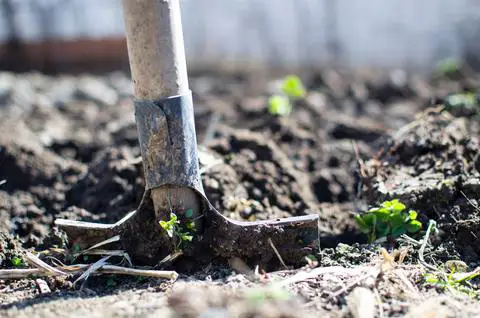
While there’s nothing wrong with this common definition, it’s merely the tip of the iceberg. There’s much more that goes into the organic label on your bag of coffee.
To complicate things further, there’s no single set of standards guiding the International market – certification standards vary from one region to another. For example, the standards for organic coffee in the U.S. are set forth by the United States Department of Agriculture’s (USDA), National Organic Program (NOP) while Japan uses the Japan Agricultural Standards (JAS) – you can see where we’re going with this. Aspiring farmers are forced to meet the organic standards of their home country as well as any country they want to export to.
As an example, let’s take a look the criteria necessary for earning the “USDA Organic” label:
1. Farming
To quote the USDA Organic Labeling Standards, the “Organic” label can be awarded to “any product that contains a minimum of 95 percent organic ingredients (excluding salt and water).” Unlike popular belief, the use of pesticides and fertilizers is not completely prohibited – you can still use natural fertilizers and pest control mechanisms.
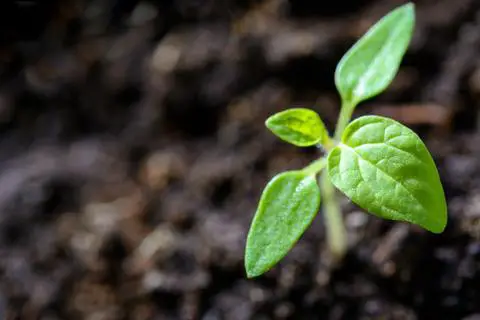
For organic coffee specifically, the USDA prohibits the use of synthetic pesticides, fertilizers, and genetically modified organisms (GMOs). Instead of synthetic components such as nitrogen, potash, and phosphate, farmers are required to use bio-green substitutes like compost, mulch, and animal manure. Consequently, farmers are required to utilize shade-growing, crop rotation, and other similar techniques to manage pests and weeds.
2. Processing
While you’re likely familiar with organic farming, did you know that coffee must also be processed and roasted organically to earn that organic label? Regarding the former, typical organic processing techniques include both wet processing and dry processing.
Although they both have their perks and drawbacks, dry processing is regarded as the more sustainable and natural method. Wet processing leaves an environmental impact from the use of additives to speed up the process, disposing of by-products, and the use of water resources.
After harvesting (hand-picked), it’s vital to store the cherries or ripe coffee beans in dedicated bags to avoid contamination.
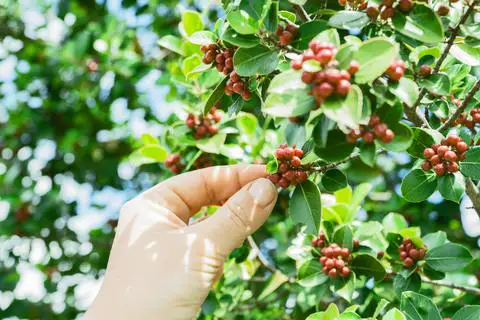
3. Roasting
Coffee roasting is often the last stage before coffee beans are available to general consumers. Roasters must also uphold specific standards for coffee to truly be organic.
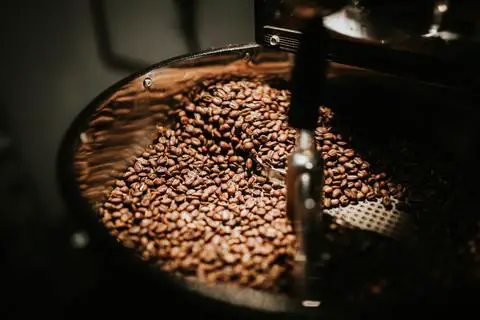
The roaster must avoid the use of artificial chemicals when roasting to qualify as organic. This also means using dedicated equipment that only roasts organic beans – i.e., to avoid transferring non-organic substances to the coffee beans.
Advantages of Organic Coffee
Believe it or not, organic coffee is a polarizing topic among coffee lovers – with some pointing out the potential health and environmental benefits, and others finding fault in both the certification process and the associated steep prices. So, what are the benefits of organic coffee?
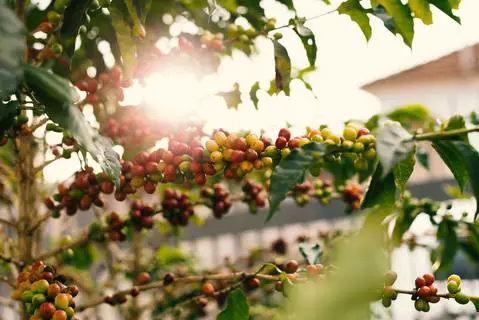
- Part of organic farming is growing coffee in the shade. Shade growing promotes biodiversity and a sustainable ecosystem of trees, bugs, birds, and other important organisms.
- The use of organic fertilizers (mulch, compost, animal manure, etc.) significantly improves the quality of soil and reduces erosive deterioration.
- Under certain circumstances (e.g., shade growing), organic farming can contribute to the production of higher quality beans.
- Organic practices can boost the natural nutrients in a product – and consequently, contribute to better health. These healthy organic nutrients are often associated with improved mood, reduced stress, improved immune system from the antioxidants, and a boost in metabolism.
- Avoiding agrochemicals altogether significantly reduces the risk of pesticide or herbicide residue in the air, water, soil, and in the beans themselves.
- Organic farming facilitates a better working environment in which farmers don’t have to deal with harsh chemicals. In fact, a study published in the Journal of Agriculture and Rural Development in the Tropics and Subtropics claimed that a significant number of Jamaican coffee farmers growing non-organic coffee suffered from negative health symptoms due to pesticide handling.
Disadvantages of Organic Coffee
- Natural mechanisms are not always effective at combating some coffee diseases such as coffee leaf rust and pests.
- Organic coffee is typically more expensive than regular coffee. This is partly because of the strict certification standards, intense labor, and time required to grow coffee in an organic manner.
- Potential fake organic coffee certifications.
- The complex management process means that organic coffee achieves lower yields than conventional methods.
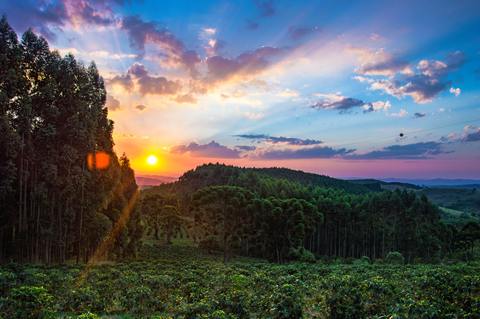
What to Look Out for When Buying Organic Coffee
You’ve decided to try out organic coffee – but how do you go about buying the best quality? Some companies use the term “organic” as purely a marketing ploy, luring you into spending extra cash on a substandard product. To avoid falling into this trap, here are a few tips and tricks you can use the next time you shop:

- Look for Only the Important Labels: While there are several “organic” certifications, the most trusted is the “USDA Organic” label. You can also look out for other legitimate labels such as “Rainforest Alliance Certified” and “Bird-Friendly Certified.”
- Check the Source of the Coffee Beans: While the source of your coffee beans does not guarantee particular growing and production conditions, it can serve as a tell-a-tale sign. For example, Brazil is known to be a major exporter of coffee but also one of the largest users of synthetic pesticides. With this in mind, you’d be cautious of beans from a Brazilian origin – unless they’re properly certified with all the necessary labels.
- Be Mindful of Fair-Trade Certified Coffee: In addition to an “organic” label, it’s advisable to keep an eye out for Fair-Trade Certification. This label guarantees that production of the coffee incorporates gender equality, empowers producers, funds social development, and sets a reasonable price for producers.
- Preserve the Beans: Always take the necessary steps to store your coffee in the best conditions possible. This includes using opaque containers, storage in a cool location, and protection from moisture. In line with the meticulous standards used to grow, process, and roast the beans, be sure to avoid contaminating the coffee with non-organic compounds, defeating the purpose of buying organic coffee.
Frequently Asked Questions
Must coffee have the “USDA Organic” label to be considered organic?
Not necessarily! Some products are grown in the most organic way possible but lack the green sticker. A large number of small-scale farmers inherently grow organic coffee, mainly because synthetic pesticides and fertilizers are too expensive. In regions such as the highlands and forests of Ethiopia, coffee is allowed to grow freely with little-to-no interference despite lack of organic certification.

How do you decaffeinate organic coffee?
Yearning for a decaf? The main methods of decaffeinating coffee include carbon dioxide, direct solvent, indirect solvent, and the Swiss water process. But similar to the roasting process, there are certain standards to uphold when decaffeinating coffee. For this purpose, it’s advisable to use the Swiss water process, which is chemical-free – and instead relies on osmosis and solubility.Does organic coffee guarantee the flavor profile of a cup?
The taste of a cup of coffee is highly dependent on a variety of factors, including personal preferences, storage, the roasting process, harvesting techniques, selection of coffee beans, and growing conditions. While organic farming practices influence the quality of a cup, it does not guarantee taste.

Where can you buy organic coffee?
If you’re interested in buying organic, there are several places to find a quality batch for brewing. This includes supermarkets, organic stores, Fair Trade shows, or online from reputable e-commerce websites. But remember, always do your research – using some of the tips discussed in this article – before making a purchase..
Organic Coffees Worth Considering
Kicking Horse Whole Bean Dark Roast Coffee

JayArr Rating: 4.7/5
This delicious, oily, rich, and dark coffee gives coffee connoisseurs an unparalleled boost in the morning. Even the pickiest of coffee lovers have rave reviews about Kicking Horse. It features a lush roast containing hints of delicious baker’s chocolate, low acidity levels, and a very smooth finish. When you open up the coffee bag, you’ll feel as if you’re in a coffee shop from the aroma alone. Kicking Horse comes in both whole bean and pre-ground options.
Real Good Coffee Company Organic Whole Bean USDA-Certified Dark Roast Coffee

JayArr Rating: 4.4
When you purchase this USDA-certified dark roast coffee, you definitely get your money’s worth. This inexpensive and solid arabica coffee has the right balance of smoothness and flavor. Best of all, the aroma is out of this world. Real Good Coffee Company Organic is easy to recommend from a value perspective.
Volcanica Organic

JayArr Rating: 4.1/5
The Volcanica Company are specialists in organic coffee. They source the finest coffee beans from around the world, visiting each farm they obtain beans out of. Volcanica prides itself on producing a certified organic product. They’re also Rainforest Alliance and Fair Trade-certified. These well-sourced and ethically-made elite coffee beans are roasted after each order is placed, ensuring optimal freshness in the small batches they’re delivered in. Although whole beans offer optimal taste and freshness, Volcanica also allows you to order their beans pre-ground to accommodate drip coffee, espresso coffee, and French press makers.
Café Don Pablo Organic Gourmet Subtle Earth Coffee

JayArr Rating: 3.7/5
Fans of this gourmet coffee are appreciative of its low acidity levels. Those who abstain from fruity or overly-acidic coffee are drawn to the Subtle Earth variety. Flavor-wise, the beverage is super smooth. The higher level of caffeine ensures that consumers remain awake with a sense of calmness. It emphasizes flavor without intensity. This low acid coffee can be made cold, hot, with a drip, and even a French press. Many people prefer to take their Subtle Earth black.
Direct City Coffee Bean New Guinea Roast Papua, Five Pound Whole Bean Bag

JayArr Rating: 3.3/5
Many coffee aficionados obtain organic beans as a bulk purchase, as buying beans in bulk allows consumers to bypass regular grocery store trips. Direct City Coffee checks that box, offering quantities of 5 pounds at a time. This coffee will be quite fresh when you receive it- the challenge is consuming it before it goes stale! There is a debate about the cost – some call it a little high for its quality, but we find it to be a pretty good value if you ordinary consume it at the necessary rate to prevent staleness. The average cost of New Guinea Roast is about $40 per bag. Broken down, that comes out to $0.47 per ounce. For perspective, the average whole bean bag comes out to approximately $0.75 per ounce.
Death Wish

JayArr Rating: 2.5/5
Death Wish, which has quite a cult-following, is actually a USDA Certified Organic coffee, in addition to being Fair Trade certified. Death Wish is sourced from both Peru and India. In contrast to the other organic options listed here, Death Wish is actually an arabica and robusta blend. Taste wise, robusta beans are generally less preferred (vs. Arabica), but do source the higher caffeine content that Death Wish boasts.
While many would disagree with this sentiment, Death Wish is hard to recommend for its taste. The addition of robusta beans makes it unnecessarily bitter and the taste is punchy in not a fantastic way.
Two Organic Cold Brew Options Worth Considering
Bizzy Cold Brew Organic Coffee

JayArr Rating: 4.5/5
Bizzy is a cold brew blend that is easy to recommend. When served black, it is sweet and smooth, devoid of burnt/bitter flavors, and is low in acidity. You could use it for a normal brewing, but it really does shine when used for cold brew.
Tiny Footprint Cold Press Organic Coffee – Cold Brew Ground Coffee Elixir

JayArr Rating: 4.3/5
Tiny Footprint is a feel-good coffee that promises a negative carbon footprint. While CO2 (four pounds’ worth) is necessary to make (and subsequently distribute) Cold Brew Elixir (one pound’s worth), the company donates a portion of proceeds to finance reforestation in the Mindo cloud forest in Ecuador.
But, above all, It also makes a great cold brew. The aroma of Tiny Footprint is powerful enough to smell from the packaging it comes in. Its flavor is quite good– not excessively strong or light. We’d recommend it.
An Organic Decaf Coffee Option
Jo Coffee Decaffeinated Organic Ground Coffee

JayArr Rating: 4.1/5
Those looking for an organic coffee without the caffeine might want to take a look at Jo Coffee Decaffeinated. Unlike many coffees decaffeinated using methyl chloride, Jo Coffee uses a Swiss Water method without chemicals.
Jo Coffee has a very rich and smooth taste. Notes of milk chocolate and blueberry flavor are most prominent. Give it a try if you are interested in a decaffeinated, organic option.
Be sure to check out our coffee review master list for more GREAT coffees!
